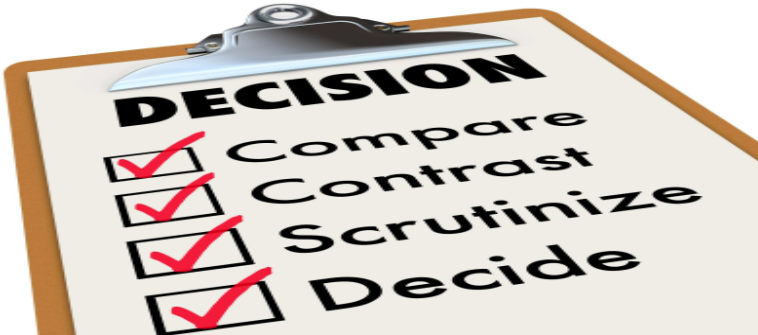
Understanding PHP Drug and Alcohol Rehab Centers
Partial Hospitalization Programs (PHP) are a specialized form of treatment designed to provide intensive care for individuals struggling with drug and alcohol addiction as well as those needing mental health services. PHP offers a structured and supportive environment similar to inpatient care but allows patients to return to their homes in the evenings. This approach provides the best of both worlds: the intensity of inpatient treatment and the flexibility of outpatient programs.
Why Choose PHP for Addiction Treatment?
PHP is an effective option for individuals who require significant support but do not need 24-hour supervision. Here are some of the key benefits of choosing PHP for addiction treatment:
- Structured Environment: PHP rehab centers provide a highly structured environment that helps individuals establish routines and develop healthy habits. This structure is crucial for those in early recovery, as it reduces the risk of relapse and provides a stable foundation for long-term sobriety.
- Intensive Therapy: PHP programs offer intensive therapy sessions, including individual counseling, group therapy, and family therapy. These sessions address the underlying causes of addiction, such as trauma, mental health disorders, and behavioral issues, and equip patients with coping strategies to manage triggers and stressors.
- Medical Support: Medical supervision is an essential component of PHP. Patients have access to medical professionals who can monitor their health, manage withdrawal symptoms, and provide medications if needed. This support is especially important for individuals with co-occurring mental health disorders or those undergoing detoxification.
- Flexibility: Unlike inpatient rehabs and treatment, PHP allows patients to return home each day. This flexibility enables individuals to maintain their daily responsibilities, such as work, school, and family obligations, while still receiving comprehensive treatment.
- Continuum of Care: PHP serves as a bridge between an inpatient and an outpatient program. It is often recommended for individuals transitioning from a residential treatment program to a less intensive level of care or for those who require more support than traditional outpatient or an intensive outpatient program can provide.
Components of PHP Drug and Alcohol Rehab Programs

PHP Partial Hospitalization Programs are designed to address the multifaceted nature of addiction. Here are some of the core components typically included in Partial Hospitalization Program drug and alcohol rehab programs:
- Assessment and Individualized Treatment Plans: The journey begins with a thorough assessment to determine the specific needs of each patient. Based on the assessment, a personalized treatment plan is developed, outlining the goals and strategies for recovery.
- Medical Detoxification: For individuals with severe addictions, medical detoxification may be the first step in seeking treatment. Under medical supervision, patients undergo a safe and controlled withdrawal from substances, with medications provided to manage withdrawal symptoms and cravings.
- Individual Therapy: One-on-one therapy sessions with licensed therapists help patients explore the root causes of their addiction. Cognitive-behavioral therapy (CBT), dialectical behavior therapy (DBT), and other evidence-based approaches are commonly used to address negative thought patterns and behaviors.
- Group Therapy: Group therapy provides a supportive community where individuals can share their experiences, gain insights, and build relationships with others who are going through similar struggles. This sense of camaraderie and mutual support is a powerful motivator for recovery.
- Family Therapy: Addiction affects not only the individual but also their loved ones. Family therapy sessions aim to heal relationships, improve communication, and involve family members in the recovery process. This holistic approach strengthens the support system and enhances the chances of long-term success.
- Holistic Therapies: Many PHP programs incorporate holistic therapies to address the physical, emotional, and spiritual aspects of recovery. These may include yoga, meditation, art therapy, music therapy, and fitness programs, which promote overall well-being and stress reduction.
- Life Skills Training: Developing practical life skills is crucial for maintaining sobriety. PHP programs often include training in areas such as stress management, time management, financial planning, and job readiness to prepare individuals for a successful transition to independent living.
- Aftercare Planning: Recovery is an ongoing process, and aftercare planning is a vital part of PHP programs. Patients work with their treatment team to develop a comprehensive aftercare plan that includes ongoing therapy, support groups, relapse prevention strategies, and resources for continued growth and development.
Who Can Benefit from PHP?
PHP is suitable for individuals at various stages of addiction recovery. It is particularly beneficial for:
- Those Transitioning from Inpatient Care: PHP provides a step-down level of care for individuals who have completed a residential treatment program and need continued support as they transition back to their daily lives.
- Individuals with Severe Addiction: For those with severe addiction who do not require 24-hour supervision, PHP offers intensive treatment and medical services to address their needs effectively.
- Patients with Co-occurring Disorders: Many individuals with addiction also suffer from mental health disorders. PHP provides integrated care that addresses both addiction and co-occurring mental health issues, such as depression, anxiety, and PTSD.
- Those with a Strong Support System: PHP is ideal for individuals who have a stable and supportive home environment. Returning home each day allows patients to practice the skills they learn in treatment and receive support from their loved ones.
Choosing the Right PHP Program

Selecting the right PHP program is a crucial step in the recovery journey. Here are some factors to consider when choosing a PHP drug and alcohol rehab program:
- Accreditation and Licensing: Ensure that the program is accredited by reputable organizations and licensed by the state. This ensures that the facility meets high standards of care and follows best practices in drug and alcohol addiction treatment.
- Qualified Staff: Look for programs staffed by licensed and experienced professionals, including doctors, nurses, therapists, and counselors. The expertise and compassion of the treatment team play a significant role in the success of the program.
- Comprehensive Approach: Choose a program that offers a comprehensive approach to treatment, addressing the physical, emotional, and psychological aspects of addiction. Holistic therapies and life skills training are valuable additions to traditional therapy and medical care.
- Personalized Treatment Plans: The best PHP programs create individualized treatment plans tailored to the unique needs and goals of each patient. Personalized care increases the likelihood of achieving long-term recovery.
- Continuum of Care: Ensure that the program provides a continuum of care, including aftercare planning and support. Recovery is a lifelong journey, and ongoing support is essential for maintaining sobriety.
Frequently Asked Questions (FAQ)

Q: What is the difference between PHP and inpatient treatment?
A: PHP offers intensive treatment similar to an inpatient program but allows patients to return home each day. Inpatient treatment involves 24-hour supervision and requires patients to stay at the facility full-time.
Q: How long does a PHP program typically last?
A: The duration of a PHP program varies depending on individual needs and progress. Programs can last anywhere from a few weeks to several months. The treatment team will assess progress regularly and adjust the length of the program as needed.
Q: Is PHP covered by insurance?
A: Many insurance plans cover PHP as part of their mental health and substance abuse benefits. It is important to check with your insurance provider to understand your insurance coverage and any out-of-pocket costs.
Q: Can I work or go to school while attending a PHP program?
A: PHP programs offer flexibility, allowing patients to attend treatment during the day and return home in the evenings. This flexibility can make it possible to maintain work or school commitments, though some adjustments to your schedule may be necessary.
Q: What kind of support is available after completing a PHP program?
A: Aftercare planning is a critical component of PHP programs. This includes ongoing therapy, support groups, relapse prevention strategies, and other resources to help maintain sobriety and continue personal growth.
Q: What should I bring to a PHP program?
A: Each program may have specific guidelines, but generally, you should bring comfortable clothing, personal hygiene items, any prescribed medications, and important documents. It is best to check with the program for a detailed list of what to bring.
Q: Can family members be involved in the treatment process?
A: Yes, family involvement is encouraged in PHP programs. Family therapy sessions help to heal relationships, improve communication, and build a supportive environment for recovery.
Q: What if I experience a relapse during the PHP program?
A: Relapse is a common part of the recovery process. If a relapse occurs, the treatment team will work with you to understand the triggers and adjust the treatment plan to better support your recovery.
Choosing a Partial Hospitalization Program drug and alcohol rehab center is a significant step toward reclaiming your life from addiction. With the right support and treatment options, recovery is possible. If you or a loved one is struggling with addiction, consider the benefits of PHP and take the first step on the path to a healthier, sober life.







